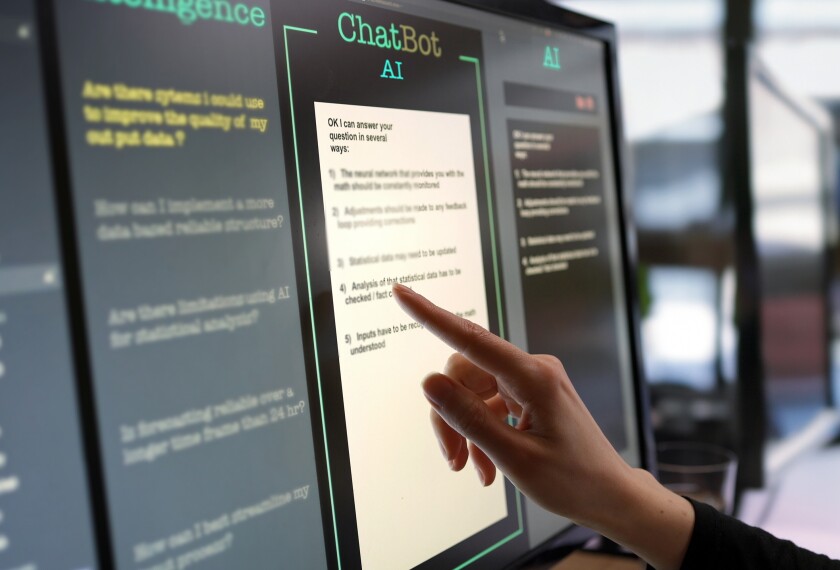A computer for babies may sound like the stuff of science fiction, but a Canadian company has just made it reality. Last month, Rullingnet Corp. launched Vinci, a 7-inch touch-screen tablet that sells for $389 to $479 and is marketed exclusively for children 4 and younger.
To some parents, Vinci is an exciting, if pricey, step in the future of early childhood education. For others, the idea of buying a tablet for a baby is excessive, if not downright creepy. As Rullingnet points out, this is a serious computer.
“The Vinci is not an imitation—it is a real touch-screen Android-based product, bringing the most advanced technology to the benefit of our youngest citizens,” the company said on its website. The product’s tag line: “Inspire the genius.”
Although the Vinci is believed to be the first tablet designed for babies as young as 1 week old, researchers said modern parents are increasingly likely to hand over a computer to a baby. A recent study by Parenting magazine and BlogHer found that 29 percent of Generation X moms say their children had played with a laptop by age 2, and that number grows to 34 percent for Generation Y moms. Roughly one-third of Gen Y moms also report that by age 2 their children were familiar with cellphones, smartphones and digital cameras. A slightly smaller percentage of Gen X moms say the same thing.
But some parents see a fundamental difference between giving a 2-year-old an iPad loaded with an episode of “Bob the Builder” to ease the stress of a long airplane flight, versus buying that 2-year-old a tablet of her own. One friend worried that his daughter wouldn’t want to put it down.
Dan Yang, the optical networking entrepreneur and mother of two who invented the device, sees tablet technology for babies another way. “Children are curious about touch screens,” she said. “We are just leveraging their curiosity.”
Yang said she was inspired to create Vinci by her own daughter, who had come to prefer her mom’s iPad to other baby toys before her first birthday. Worried that her daughter might chip a tooth on the iPad or drop it on her foot, Yang set out to create a tablet that would be lightweight and easy to grasp.
Vinci is smaller than the iPad and about the same weight as the latest Apple model. Like tablets for grown-ups, the screen is black and shiny, but it is suspended in a rubbery red frame to protect it from banging, shaking and dropping. It is not Wi-Fi enabled, so children cannot inadvertently download inappropriate material.
It comes loaded with a few stories and games that encourage children to think about feelings as well as numbers and letters. It can play music videos, and Yang said more apps are in development. For now, Vinci is available only through Amazon.com and Fred Segal’s Lifesize children’s boutique, where store manager Victoria Wilson said several had sold. A Vinci spokeswoman said 600 have sold in the first month of release.
Yang is not positioning Vinci as a toy. Rather, she says it is “a new category of learning system.” This might help her to market the Vinci to the same parents who made Baby Einstein’s learning videos such a commercial success and who are fueling sales of the Your Baby Can Read program. These are the parents who want to give their children a head start in a competitive world and believe that providing a structured learning experience at an early age is the way to do it.
One reviewer on Amazon complained about the high price but said she found Vinci to be educational for her daughter “and great for her self-esteem.”
But early childhood development experts remain skeptical.
“The general consensus in electronic toys and games versus traditional ones is that they are not necessarily harmful, but they are not better either,” said Alicia Chang, a postdoctoral researcher who spent the last year at the University of Delaware School of Education studying how young children learn geometry. “I know that little kids really seem to like touch screens, but I think parents sometimes confuse that interest with thinking it is actual learning.”
Toby Mintz, an associate professor of psychology and linguistics at USC, said one important question to ask is: What is the infant not doing because she is using the device? “If she is not watching a cartoon on TV, then the device might be providing some benefit,” he said. “On the other hand, if it is replacing time exploring the world on her own, or interacting with a caretaker, that could be a disadvantage.”
Most parents seem to share the skepticism.
“Of course a baby would want to play with a computer,” said Alexis Westgren, mother of a 5-month-old. “They mirror what we do, and we’re always so intent on our devices. But do we really need to start them so early?”




